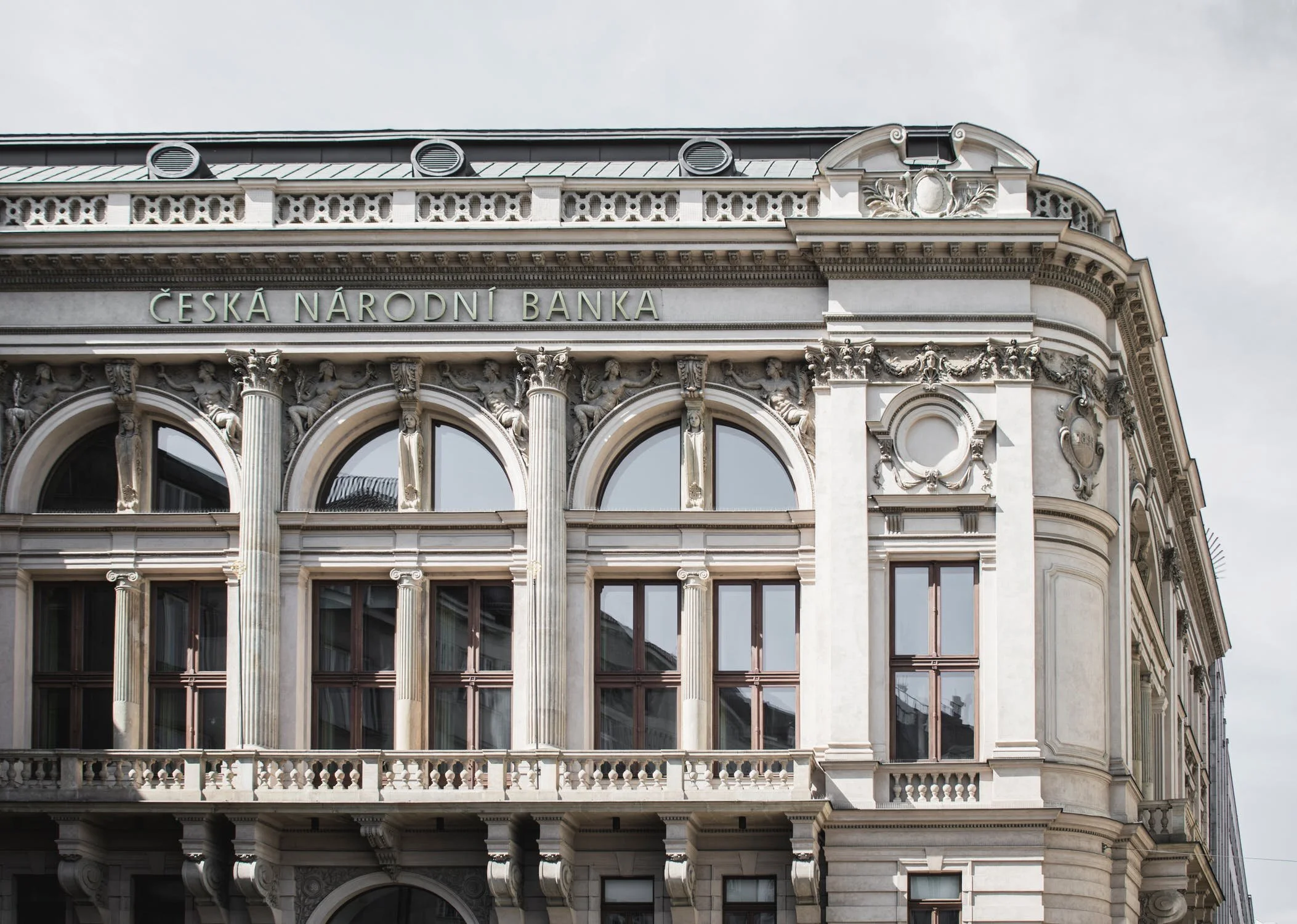How to Take The Headache and Hassle Out of Commercial Real Estate Investing
Commercial real estate investing can seem like (and be) a pretty tricky business.
Done correctly, it takes a lot of time, money, knowledge, and risk ... but it doesn't have to.
There are two overarching forms of real estate investing that we'll discuss today, one is popularly known as active and the other is passive.
We like to think of it this way... active real estate investing is "DIY," and passive real estate investing is "Done for You."
Let's take a look at both and try and determine which is best for you, before you make one of the biggest (and possibly best) financial commitments of your life.
What Does Active Commercial Real Estate Investing Look Like?
In a word? Difficult.
The “active” commercial real estate investor must be -- or become -- a professional.
There are simply too many pitfalls, details, and legal and financial hazards that confront the commercial real estate investor, for that person not to be a professional in his or her field and in his or her particular market.
Hundreds of hours of specific study, professional licensing, hundreds of hours more of studying your particular market, and finally, the constant, full-time search for acceptable/profitable deals.
Phew, did I say difficult?
Now, all that said, it’s certainly not impossible to become an active real estate investor, but I think it’s wise to see the path ahead of you.
And there are many different ways to enter the market on your own, including via ground up development (likely the most difficult), value add investing, and the use of triple net stabilized assets … to name just a few.
So, if active investing seems like just too much hassle, but you’re still looking for commercial real estate investment deals, what’s an investor to do?
I think I have the answer for you ...
What Does Passive Commercial Real Estate Investing Look Like?
I would never categorize any real investment strategy as easy, but passive commercial real estate investing -- when working with a reliable, smart, and ethical operator -- probably comes closest to that definition.
In short, passive investing in commercial real estate gives you a ton of the benefits of active investing, without a lot of the drawbacks.
Essentially, instead of becoming the professional yourself, you (and your money) work with that reliable, smart, and ethical professional operator I mentioned above to find and execute deals that stabilize and grow your investment over time.
In this scenario, you do not need to be an expert in commercial real estate deals (though you can be, I mean, it is a fun hobby). You merely need to work with a trustworthy someone who is.
From syndication, to raising capital, to the use of REITs, the structure of passive commercial real estate investing can look almost any way you need it to, and are comfortable with.
Which brings us to the question, why?
7 Benefits Of Passively Investing In Commercial Real Estate
So, should you become an active or passive commercial real estate investor?
I won’t hedge, in my years of professional experience, passive real estate investing -- when done right -- is a far superior opportunity for most investors.
As a passive investor, you will not only receive passive income and appreciation from the property, but also tax benefits, stronger buying power, and more.
And, maybe most importantly? Passive investors experience a lot less headaches and hassles!
Here are just a few of the benefits of passively investing in commercial real estate:
1. Increased Buying Power Through Leverage
The most outstanding benefit of investing in commercial real estate, in my opinion, is your ability to increase your buying power through leverage.
Leveraging means utilizing borrowed capital (debt) to make an investment.
And, as a passive investor in commercial real estate, you pool your money with other investors to buy an even larger, more stabilized asset than any of you could likely afford or care to risk alone.
Who wouldn’t want to buy more with less money?
Sure, you will have a mortgage to pay by using leverage, but if you buy right, you’ll still have cash flow and risk diversification.
2. Risk Diversification
Diversification can be an investor’s best friend.
And there are many ways to diversify your portfolio as a passive commercial real estate investor.
More tenants = less risk.
Think about it - if you have a single-family home and your tenant moves out, you now have a 100% vacancy rate.
However, if you own a 50-unit multifamily complex and one tenant moves out, you won’t hardly notice the impact on your bottom line.
And if you’re investing with an established real estate operator, you’ll be able to select which asset type, where the asset is located, and proposed project type.
There is nearly an unlimited amount of different types of passive investments you can make in the commercial real estate realm.
3. Forced Appreciation
In commercial real estate, an asset’s value is directly correlated to its Net Operating Income (NOI).
By raising a property’s net operating income, you can increase the value significantly to any potential investors.
This intrinsic appreciation is largely due to the commercial real estate industry’s use of capitalization rates (cap rates).
A cap rate is the net on investment of any given property if you paid all cash.
For example, if you paid $100,000 cash for a property and it netted you $10,000 per year, that would give you a 10% cap rate.
Investors use this metric on a cash basis because each investor group’s financing will vary from one to the next.
In commercial real estate, you have far greater control of a project’s destiny, whereas investments like stocks and bonds don’t allow you to have much more influence other than buying and selling based on the market.
4. Investing With Seasoned Professionals
If you don’t know what you’re doing, find someone who does.
That statement rings true for just about anything in life.
If you’re looking to passively invest in commercial real estate, you’re going to be placing that capital (hopefully) with a group that has an outstanding track record and an experienced team.
Not only will investing with seasoned professionals reduce your risk as a passive real estate investor, but you will also be able to learn how these deals are operated, if you’re so inclined.
I know many commercial real estate developers and syndicators that started their career by investing with and learning from an already established group.
Better to learn and make money than it is to learn and lose it!
5. It’s A Tangible Asset
Unlike stocks, bonds, and other investment vehicles, commercial real estate has value in both the land itself and the improvements on the property, such as structures, infrastructure, and landscaping, in addition to the value created by the income.
So, even if your income falls to zero and you’re unable to replace those tenants, you’ll still have some assets to fall back on and protect your downside.
Commercial real estate is also relatively stable, as it offers housing (apartment complexes or mobile home parks), services (retail or office space), or storage and production (industrial warehouses).
Because of these factors, commercial real estate will not fluctuate and experience the massive ups and downs that the stock market will.
6. Tax Advantages
Commercial real estate provides investors with a number of tax advantages.
You will be able to deduct the interest payments you make on your mortgage, meaning not only are you utilizing someone else’s money to purchase a larger property, but you can also write off their cut for providing you with that cash.
The IRS allows commercial properties to be depreciated over a 39-year schedule, but you can speed up this process by taking advantage of accelerated depreciation if you do a cost-segregation study. Essentially, you get a write-off just for owning the property!
Other deductions include any renovations, maintenance, ongoing upgrades, or any other out-of-pocket expenses related to owning the property.
After you sell the property, you’ll also benefit from capital gains tax, which is significantly lower than most investors’ ordinary income tax, and you can even 1031 exchange those proceeds into another piece of real estate without paying taxes at all.
7. Passive Income!
Passive income is the entire reason you’re here, right?
The most beautiful part of investing in commercial real estate is the passive income opportunity. You place your capital into a deal and let that capital work for you.
If you’re reading this article, chances are good that financial freedom is one of your goals. To be able to take that trip whenever you feel like it. To buy that new car. To never wake up in the middle of the night worried about paying your bills again.
And not only will passive income help you reach that point of stability in your life, it’s taxed differently than your ordinary income, so your path to building wealth is accelerated.
Important Questions You Need to Ask Before You Begin Investing Passively
OK, so I think it’s fair to say that we’ve established the benefits of passive over active commercial real estate investing, so what’s next?
What questions should you -- the investor -- be asking yourself, in order to make sure your investment is handled well?
When investing your capital into any venture - whether with a money manager or passively in commercial real estate, you should be asking as many questions as you possibly can to ensure that you fully understand the deal.
Further questions about investing passively in commercial real estate? Leave us a comment at the bottom of the page.
1. Is The Operator Investing Personally?
Simple: what is the promoter’s stake in the deal?
Are they putting their own capital into it? Are they placing at least their minimum ask?
If a real estate operator is looking to raise capital for their deal on a $100,000 minimum, they better be putting at least that much capital into the project.
If not, they likely don’t have the experience to be working on a project of that scale or don’t believe it will succeed.
As a passive real estate investor, you want to be sure that your operator has skin in the game.
It shouldn’t be easy for them to just walk away should anything go wrong.
2. What Are The Upfront And Ongoing Fees?
When it comes to investing in general, fees are everything.
A deal may look amazing at first glance until you realize all of the fees that the operator is taking for themselves.
Fees like a loan guaranty fee, an acquisition fee, an asset management fee, a disposition fee, etc.
While these are fairly commonplace for these types of investments, it’s important that you understand what these fees are intended to cover and that the operator’s financial incentives are aligned with your success.
3. What Is The Exit Strategy?
Every great investment begins with multiple exit strategies.
Sure, you can buy right.
But if you can only sell that project to a very specific end user, chances are good that you won’t end up with quite the payday you were expecting.
Make sure that your operator has a plan for how you will be exiting the project, whether it’s a buy and hold, sale, refinance with a capital event, etc.
You need to be on the same page with the operator with respect to the goals of the deal before you enter an investment.
4. What Will The Capital Be Used For?
What are your dollars going towards?
If you’re investing in a value-add operation, you want to make sure that capital is being utilized to its max potential.
Your operator better have a very clear plan for how every dollar will be utilized during an acquisition - and if they don’t, that’s a major red flag for you as the investor.
Don’t be afraid to question why the operator has decided to allot capital for any specific project.
Just because they’re the “experienced” one here doesn’t mean they know everything.
If you feel uneasy about the project improvements, say something.
5. What’s Their Track Record?
A real estate operator’s track record will give you a good indication as to how your project will go.
If they have a run of successful projects in a similar manner, chances are good that your investment will end up in the black, as well. However, if they’ve had a couple shaky deals recently, you may want to reconsider your position.
Inexperienced operators tend to make mistakes with investment capital, as they have less experience managing projects, budgets, and timelines.
6. What Are The Comparable Properties?
Take the comparable properties your operator gives you with a grain of salt.
You should definitely do some digging yourself, as it’s easy in real estate to pull comps that fit the narrative of the operator.
While comparable properties aren’t everything, they will certainly give you a ballpark idea of whether or not your project will work.
If your operator feels he can get $3.00/sf on his apartment units and comps are at $1.10/sf, you’re in scary territory.
7. What’s The Loan To Debt Ratio?
Leverage is an investor’s best friend.
It can also be the inexperienced investor’s worst enemy.
Debt will certainly help you acquire more property than you could on your own, but too much debt isn’t always a good thing.
If the deal is marginal and only works with an excessive amount of debt, it’s not a deal.
Don’t overpay for a property - if banks refused to finance it under normal circumstances, chances are the deal just won’t work.
8. Who Is Involved In The Deal?
The team you have working on a deal is just as strong as that team’s track record.
What does each individual involved bring to the table?
It’s important to have a diverse group here that can attack the project from every angle.
You don’t want too many acquisitions guys and not enough operational partners.
Be sure that your real estate operator’s team is well-balanced and curated for the project that you’re investing in.
Ready to Start Creating Truly Passive Investment Income?
We hear it all the time … passive income is the best income.
The only problem is, there are very few investment vehicles that are truly passive AND that have a realistic shot at making you serious money (or, at the very least, protecting your money) over the long term.
I get it, you’re already incredibly busy with your life and your work, you don’t have the time to figure out this real estate stuff, much less become a pro at it.
So why not let us handle all of those headaches for you?
If you want to find out how this might work, we’d love to talk.
Set up a call here to discuss investing with my team or email office@thecaublegroup.com.
And lastly, click here to see what kind of commercial real estate deals we’re up to right now!





















Recessions expose the strengths and weaknesses of every investment portfolio—but in commercial real estate, some asset classes consistently rise above the volatility. While economic downturns often lead to higher vacancies, tighter lending conditions, and declining property values, not all sectors are equally vulnerable. In fact, a select group of asset classes tend to outperform, offering dependable cash flow and tenant stability even in uncertain times.
These recession-resistant properties share a few key traits: they serve essential needs, attract long-term tenants, and demonstrate historically low vacancy rates regardless of economic conditions. Whether you’re a seasoned investor rebalancing your portfolio or a new buyer looking for durable assets, understanding where to deploy capital in a recession is critical.
In this post, we’ll break down the top three commercial real estate sectors that offer resilience during downturns—industrial real estate, medical office buildings, and necessity-based retail. Each has its own strengths, challenges, and long-term outlook—but together, they represent a strong foundation for any investor looking to build a portfolio that can weather the next economic storm.
Let’s dive in.